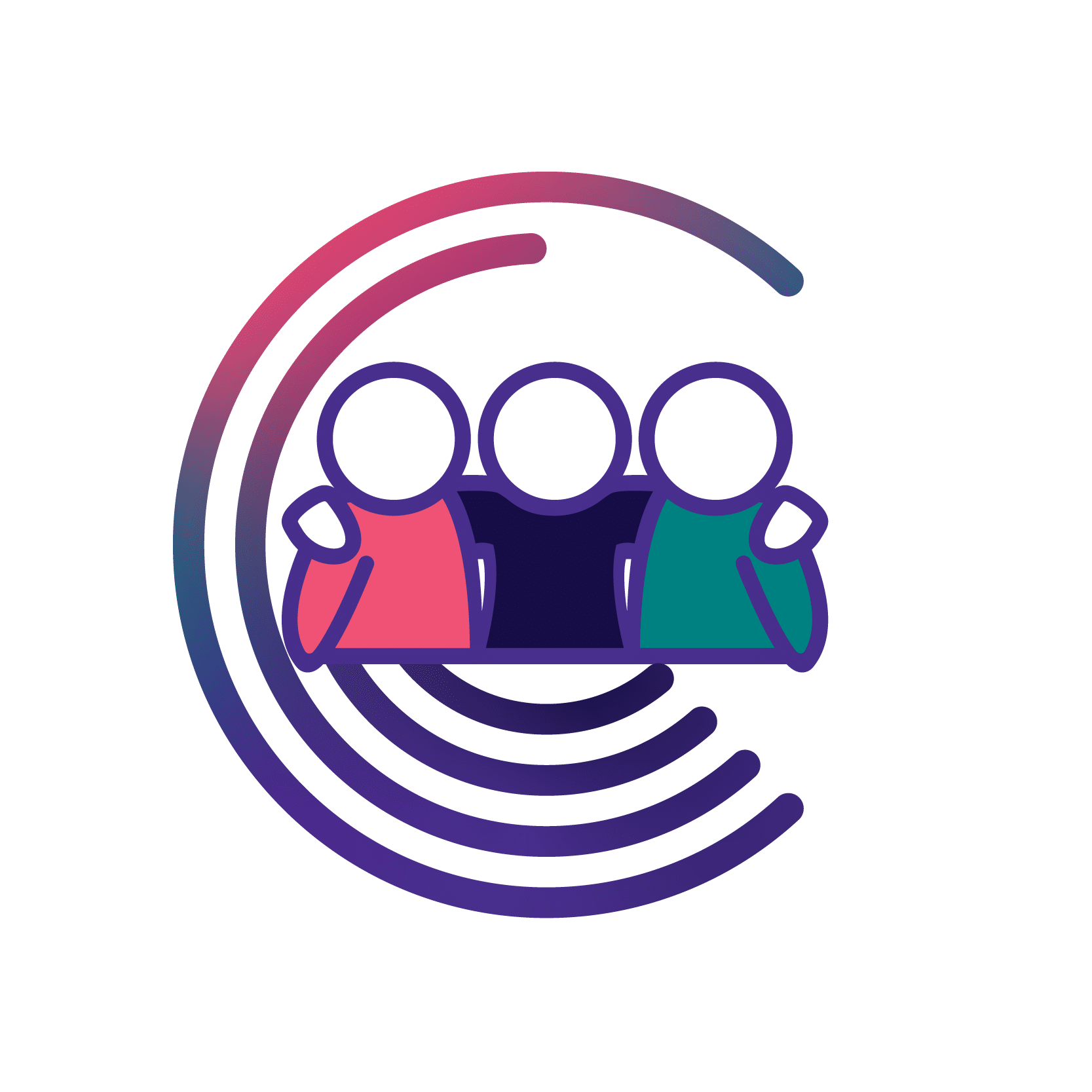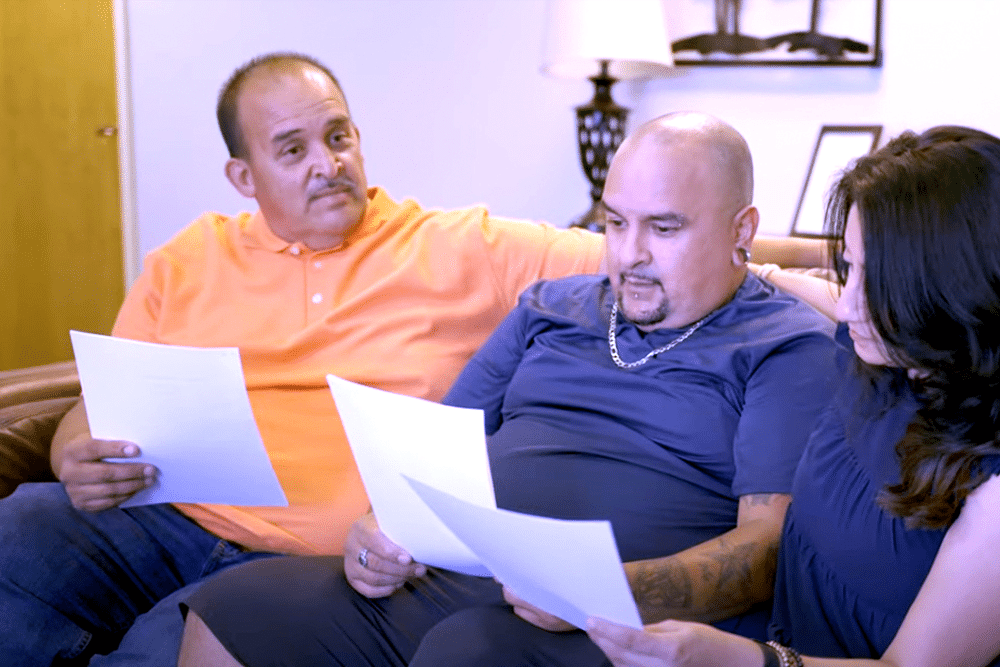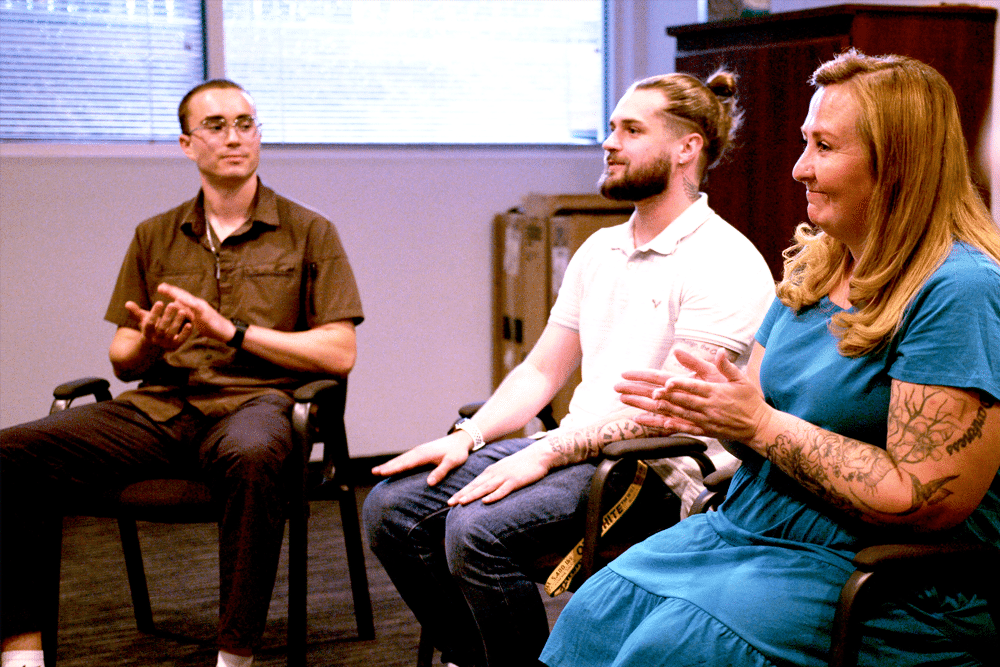
Addiction Family Support
Albuquerque
Family Support and Relapse Response Program
Turning Point Recovery Center offers a Family Support and Relapse Response Program. This structured approach is designed to equip families with the tools, knowledge, and confidence to support loved ones in addiction recovery. Recognizing that recovery is a journey with potential setbacks, this program emphasizes both prevention strategies and proactive response techniques that family members can use to foster a stable, supportive environment.
By fostering a collaborative approach, families develop a healthier, more supportive environment that contributes to the overall success of the recovery journey of their loved one. We believe that embracing you and your family with compassion, treating everyone with respect, and providing the best practices will empower your family with the best tools so everyone can reclaim their lives together. Healing from substance use is a family effort, and we are here to help. Explore more of our services, or share our information with those needing support.

What Resources Are Available To Families?
The program covers critical areas of relapse prevention and offers insights into addiction as a chronic, treatable disease. Family members learn about common triggers and warning signs of relapse, empowering them to notice early indicators and respond promptly and compassionately. Training includes effective communication techniques, boundary setting, and self-care practices to help families create a nurturing but structured environment. Families are also educated on managing their own emotional responses to recovery challenges, reducing the chance of unintentional negative reinforcement of old behaviors.
Additionally, the program includes relapse response training, emphasizing that a relapse does not signify failure but rather a signal that additional support and possibly treatment modifications may be needed. Families learn to approach relapse constructively, using non-judgmental language and supportive interventions. Practical guidance on seeking professional help, handling crises, and re-establishing trust is also covered.
This holistic program aims to build resilience within families, fostering a community-based approach to recovery. Involving family members in both preventative and responsive roles reduces the stigma around relapse, encourages open communication, and promotes long-term recovery for everyone involved. The Family Guidance for Relapse Prevention program ultimately empowers families to actively participate in the recovery process, providing their loved ones with a reliable support system.
What Families Can Expect From Us
We understand the vital role that family plays in the journey to recovery. That’s why we offer comprehensive family support services designed to educate, empower, and involve loved ones in the recovery process. Our family support program provides a safe and nurturing environment where family members can learn about addiction, explore effective communication strategies, and gain the tools they need to support their loved one’s recovery journey.
1
Understanding Addiction and Relapse
- Educate families about addiction as a chronic, treatable condition.
- Explain the stages of addiction recovery and potential relapse triggers.
- Highlight that relapse can be a part of the recovery journey, not a sign of failure.
2
Recognizing Relapse Triggers and Warning Signs
- Identify common relapse triggers (stress, emotional triggers, social situations).
- Teach families to recognize early warning signs of relapse behavior.
- Develop observational skills to notice changes in mood, behavior, and social patterns.
3
Communication and Conflict Resolution Skills
- Provide training on effective, non-judgmental communication.
- Teach active listening, open-ended questions, and expressing empathy.
- Introduce conflict de-escalation and constructive problem-solving techniques.
4
Setting Healthy Boundaries
- Help families establish clear, supportive boundaries.
- Discuss the importance of enforcing boundaries consistently.
- Encourage mutual respect and accountability.
5
Self-Care and Emotional Resilience for Family Members
- Emphasize the importance of self-care to prevent burnout.
- Offer stress management strategies (mindfulness, relaxation techniques).
- Provide tools to help family members process their emotions healthily.
6
Relapse Response Strategies
- Outline a step-by-step approach to handle relapse episodes constructively.
- Teach families to avoid blame and instead offer support and understanding.
- Provide guidance on when to seek professional intervention or adjust treatment plans.


7
Community Resources and Support Networks
- Introduce families to local support groups (e.g., Al-Anon, Nar-Anon).
- Provide information on community resources for ongoing support.
- Encourage building a strong support network within and outside the family.
8
Empowerment Through Knowledge and Ongoing Education
- Emphasize the role of continuous learning of effective support.
- Share updated information on addiction, relapse prevention, and recovery.
- Encourage participation in workshops or seminars on addiction and family dynamics.
Family Involvement is Crucial for Recovery Success
At Turning Point Recovery Center, we recognize that family involvement is crucial for long-term recovery success. Our facility encourages family members to participate in family therapy sessions and visitation opportunities to strengthen bonds and foster healing. By engaging families as active partners in the recovery process, we aim to create a supportive and cohesive network that promotes sustained sobriety and overall well-being for both the individual in recovery and their loved ones.
CALL NOW
505-217-1717
We’re here to help.
We’ll help you get on the best path forward in your recovery journey.
Most insurance plans, including Medicaid, are accepted.
